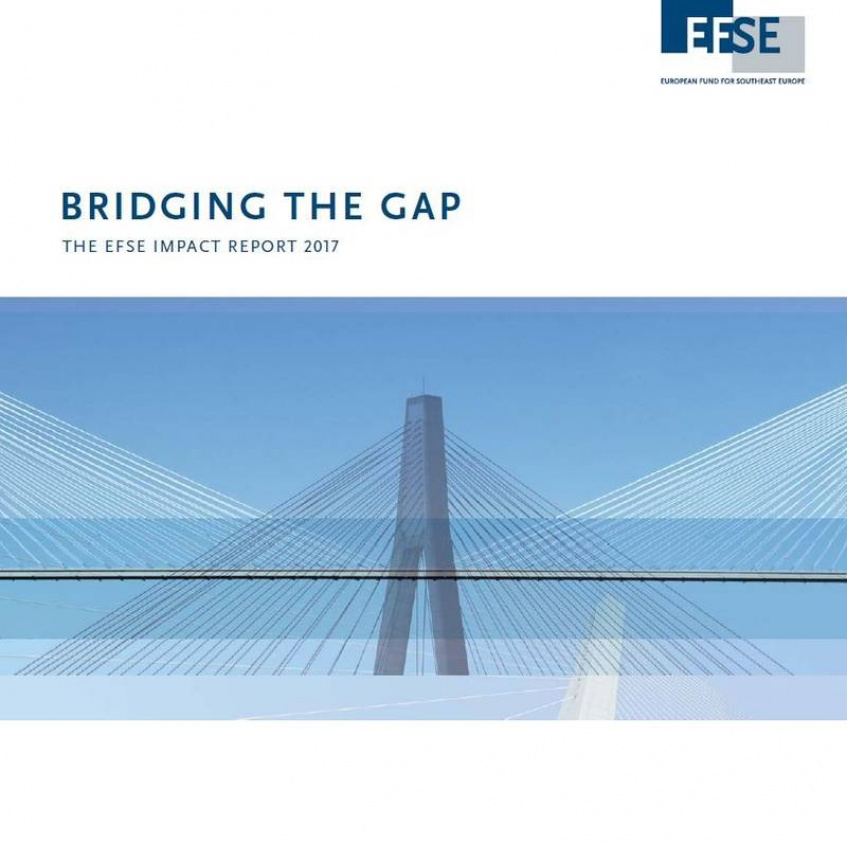
The European Fund for Southeast Europe (EFSE) released its Impact Report today, showcasing the fund’s accomplishments in supporting entrepreneurs as the drivers of micro and small enterprises (MSEs) – the economic backbone of the fund’s target regions.
EFSE aims to foster economic development and prosperity in Southeastern Europe and in the European Eastern Neighbourhood region – where it receives funding from the European Union as part of the EU4Business initiative – through the sustainable provision of additional development finance, notably to MSEs and private households, via qualified financial institutions.
Its latest report, ‘Bridging the Gap’, illustrates the key role that the fund plays not only in promoting a robust and healthy financial environment for existing MSEs to prosper, but also in connecting budding entrepreneurs to the resources and support they need to turn bright ideas into successful new businesses. Paths were forged between startups and investors, local markets and international financial institutions, and innovative entrepreneurs and experienced mentors, as well as between the entrepreneurs themselves who will form the next generation of industry pioneers.
In 2017, EFSE operations had made possible over 137,000 individual sub-loans to improve lives and bolster economic development. Its Development Facility reached over 16,000 end beneficiaries in capacity building, mentorship, and training measures. By the end of 2017, EFSE and its Development Facility had unleashed a cumulative €6.5 billion toward its mission of fostering sustainable and responsible finance.
The European Fund for Southeast Europe (EFSE) was initiated by KfW Development Bank (KfW) with the financial support of the German Federal Ministry for Economic Cooperation and Development (BMZ) and the European Commission.
It aims to foster economic development and prosperity in Albania, Armenia, Azerbaijan, Belarus, Bosnia and Herzegovina, Bulgaria, Croatia, former Yugoslav Republic of Macedonia, Kosovo, Georgia, Moldova, Montenegro, Romania, Serbia, Ukraine and Turkey.
As access to finance is a key success factor in developing the micro, small and medium enterprise segments, EFSE focuses on assisting local financial sectors in strengthening their ability to ensure adequate and sustainable financing. The funding EFSE provides as long-term finance is channelled to loan customers – primarily micro and small enterprises (MSEs), but also private households for home improvement – through local partner lending institutions. Supporting EFSE’s investment activities is the EFSE Development Facility, which provides partner lending institutions with technical assistance, consulting and training services to build operational capacities and professional management.
The report can be read online as an interactive report or downloaded as a complete PDF.




